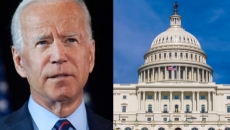Toronto, June 29 (IANS) Canada has invited 500 healthcare workers to immigrate under its new category-based Express Entry selection draws with candidates requiring a minimum comprehensive ranking system (CRS) score of 476.
Following this first category-based selection draw since six new categories were announced in May, a second round inviting 1,500 workers to apply will take place on July 5.
"We are bringing more health care workers to Canada! We’ve changed the approach to immigration by bringing an additional focus on certain sectors facing serious labour shortages. The first sector to benefit from this new process is healthcare," Sean Fraser, Minister of Immigration, Refugees and Citizenship (IRCC) tweeted on Wednesday.
According to Fraser, the new program is expected to double the number of healthcare workers coming to Canada through the federal Express Entry system this year.
In no sector is the labour shortage more prominent than in #healthcare. Today’s announcement will facilitate, fast track and streamline permanent residency applications and help improve health workforce recruitment efforts by bringing more qualified health professionals into 🇨🇦. pic.twitter.com/dx4xIwZkjl
— Jean-Yves Duclos (@jyduclos) June 28, 2023
A draw inviting eligible candidates from STEM fields is also expected to occur in the same week.
The 15th draw of the country's flagship economic immigration management system, which invited 4,300 candidates in total, follows the most recent draw on June 8, inviting 4,800 candidates.
On May 31, the IRCC announced new category-based selection for Express Entry, focusing on candidates with work experience in fields like healthcare, agriculture and agri-food, STEM professions and trades, such as carpenters, plumbers and contractors transport.
Among the new categories, healthcare jobs make up the largest number of eligible occupations, 35 in total, including doctors, nurses, dentists, pharmacists, physiotherapists and optometrists.
Health field is one of several key sectors of Canada’s labour force which is facing unprecedented shortages, according to Fraser who said the sector needs more workers to continue delivering the quality care that the citizens deserve.
Recent job vacancy data from Statistics Canada shows that there were 144,500 vacant positions within the healthcare and social assistance sector as of March 2023, or 17.7 per cent of all unfilled positions, a CIC report said.
Between 2017 and 2022, 21,656 skilled newcomers arrived in Canada to work in health occupations.
Immigration accounts for almost 100 per cent of Canada’s labour force growth, helping to address labour shortages in key sectors.






